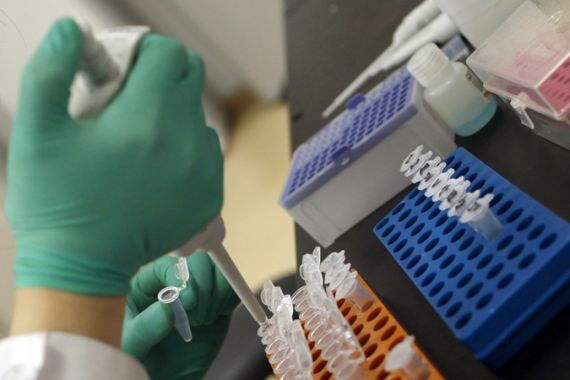India to roll out ‘drugs for all’ plan
Scheme to supply five billion dollars worth of free medicine will bring nation closer to universal health coverage.

India is moving ahead with plans to spend nearly five billion dollars to supply free drugs to patients — bringing the nation closer to universal health coverage.
The “game-changing” scheme, in the words of one top Indian health ministry official, is part of the government’s latest five-year spending programme, and is expected to start in October.
Keep reading
list of 4 itemsGaza lost much more than a hospital when it lost al-Shifa
With measles on the rise, rebuilding trust in vaccines is a must
Could a bird flu pandemic spread to humans?
This initiative “would be a giant step in vastly expanding the access to medicines” in the country of 1.2 billion people, Ministry of Health joint secretary Arun Panda said.
The centre-left Congress government will pay 200 billion rupees $3.61bn, while India’s 29 states will be asked to kick in 66bn rupees over the next five years to the scheme, a government statement said on Friday.
The plan is set for formal approval next month but the drug scheme has already received its first chunk of 10bn rupees from India’s Planning Commission for 2012-13.
Universal coverage
Prime Minister Manmohan Singh, a champion of the so-called “free-medicines-for-all” scheme, has also asked the health ministry to set up a central procurement agency to obtain the drugs in bulk.
“This starts us on the road to universal health care,” K. Srinath Reddy, head of the Public Health Foundation of India, told the AFP news agency.
“It won’t happen overnight — it may be 10 or 15 years but we’re on our way,” said Reddy, who chaired a high-level government panel that laid out a roadmap for universal coverage.
The drugs plan could give a flip to the embattled Congress government, reeling from a string of corruption scandals and a sharply slowing economy, ahead of the general elections set for 2014.
Gainers will also be India’s booming generic drug companies that include giants Ranbaxy, Dr Reddy’s and Cipla.
The scheme will offer cheaper generic versions of branded drugs — shutting out international pharmaceutical giants — but the firms have normally looked to the burgeoning class of more affluent Indians to buy their medicines.
“Globally, governments traditionally get their drugs from generic sources so it’s no surprise India is not turning to branded drugs,” said an analyst at an Indian brokerage who could not be named due to his company’s policy.
The 348 drugs to be provided include anesthetics, anti-AIDS, anti-psychotic, steroid, anti-ulcer, cholesterol-busting and cancer medicines. Some five percent of funds are being set aside to buy drugs off the essential list.
The government is seeking to “provide affordable healthcare to the poor and vulnerable,” additional health secretary L.C. Goyal said, adding India aimed to launch “the game-changing programme from October.”
Some 78 per cent of spending on health comes from Indians’ own pockets — one of the highest rates globally.
Also, 72 per cent of health spending goes to drugs, not treatment, said Public Health Foundation’s Reddy.
The health ministry hopes by 2017, 52 per cent of Indians or some 600 million people will have access to the drug scheme.
“Universal health care is not possible without essential drugs and we thought this is one of the early and easily implementable steps,” said Reddy.
“It’s a very welcome commitment by the government,” Leena Menghaney, a lawyer with humanitarian group Medecins sans Frontieres (Doctors Without Borders) told AFP.
“But supply management will be key to ensure the drugs do not end up in the private market,” she said, as is often the case with subsidised goods in India.
Free medicines cannot alleviate the country’s overburdened public health care system in which many hospitals lack up-to-date equipment and doctors. Wealthier Indians routinely opt for India’s better resourced private hospitals.
But the government estimates 40 million Indians are forced into poverty annually because of treatment costs. Others are forced to seek loans or sell assets.